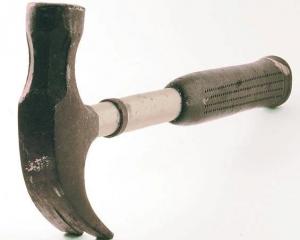Nationally, house sales for January were up 11.5% compared with December and up 21% on a year ago, while the house price index was up 1% from December, and 7.2% on a year ago, according to Real Estate Institute of New Zealand data released yesterday.
Otago reflected the national swing, with prices and sales a year ago moving from $225,500 to $234,500 and numbers up from 176 to 196 home sales.
In the separate Central Otago Lakes region data, prices and sales were down slightly, but the Queenstown component saw prices swing from $499,000 a year ago to $562,500, with volumes down from 35 a year ago to 34.
Nationally, 4933 homes sold during January, the median price up 4.2% to $370,000; easing from the December record of $389,000. ASB senior economist Jane Turner said the Reserve Bank had become ''increasingly nervous around housing market developments'' and the recent acceleration in credit demand.
''Figures for December and January suggest demand remains firm, while supply is still low ... we can expect further price increases in the coming months,'' she said. The Reserve Bank would be watching these developments closely, mindful of the risks to inflation and financial stability.
While Ms Turner said she expected the Reserve Bank to leave the interest-driving official cash rate, at a record 2.5% low, untouched until March next year, she suggested the central bank might use ''macro prudential tools later this year in order to try ease housing market pressures''.
The Reserve Bank's four tools are the banks' core funding ratios, counter-cyclical capital buffers, sectorial risk weightings and loan to value limits.
''The most likely tool the Reserve Bank would use in this case is minimum loan to value ratios,'' she said.
Reinz director Liz Nidd, of Dunedin, said while Otago sales rose 11% on a year ago, , the sales volumes were down 15%, led by declines in Dunedin and North Otago.
''The number of listings remains a concern, with the result that the trend in prices is moving up,'' she said.
Westpac's chief economist, Dominick Stephens, said the January data ''portrayed a housing market that has continued to heat up''. The seasonally adjusted number of Reinz house sales was up 3.5% in January, and is 21% higher than a year ago.
He noted house price inflation had continued to accelerate, saying the Reinz house price index was now 7.2% higher than a year ago, and Quotable Value's index was 6.2% higher.
''There have been further signs that markets are becoming more buoyant across New Zealand, not just in Auckland and Canterbury. The volume of house sales has risen at least 10% over the past year in all regions of New Zealand, except Taranaki,'' he said.
Compared with a year ago, the sales volume in Otago was up 11.3%, Auckland rose 27%, Southland sales 40% and Northland's up 39%.




